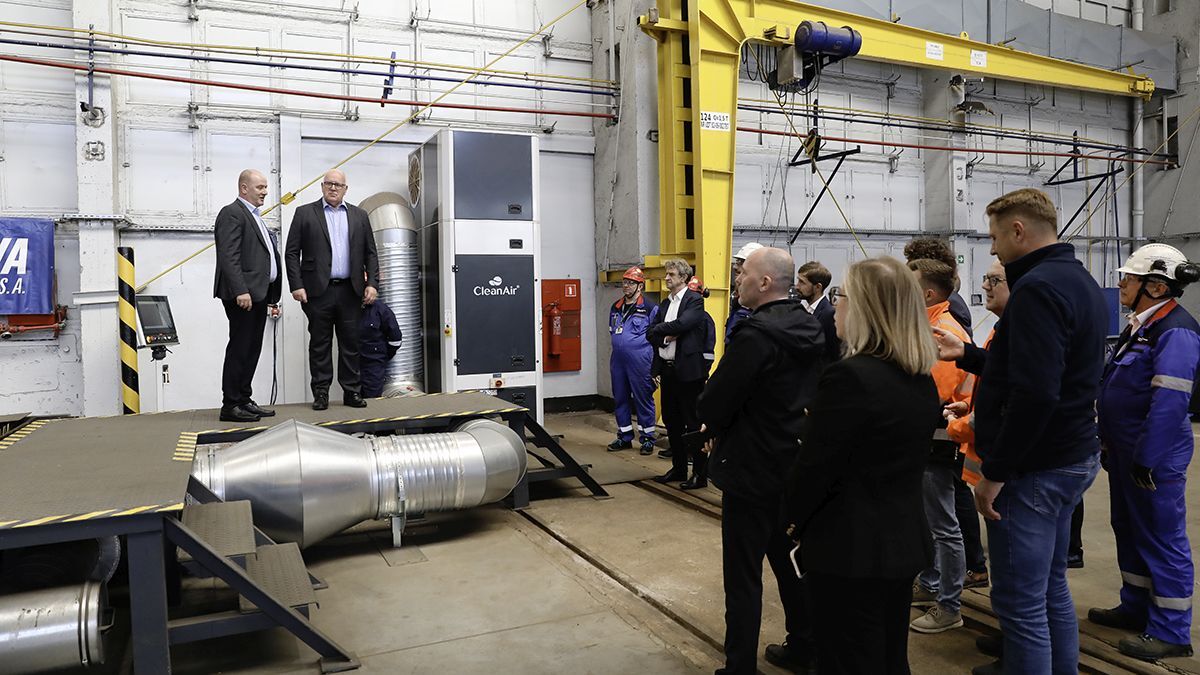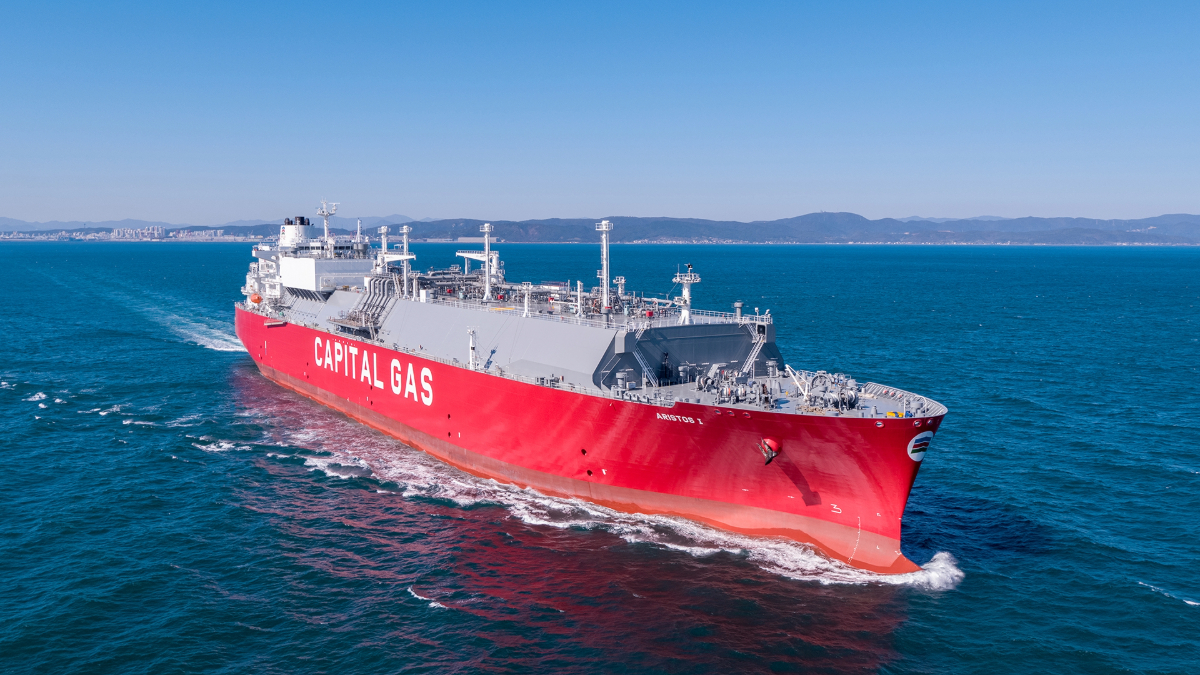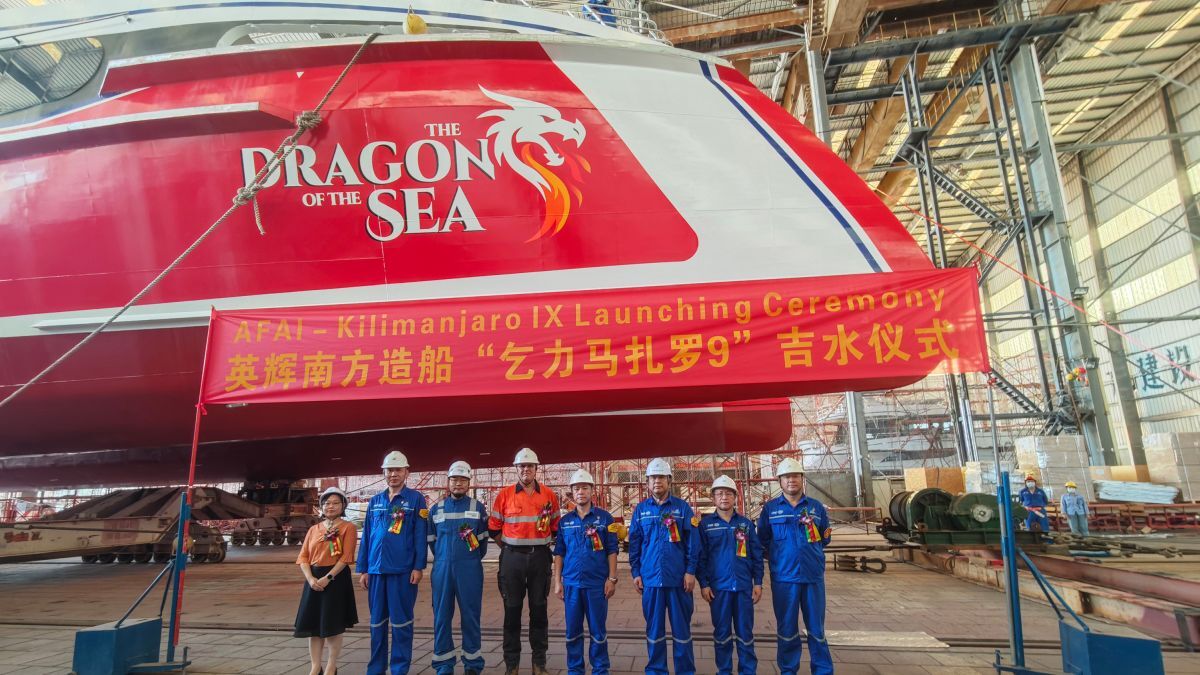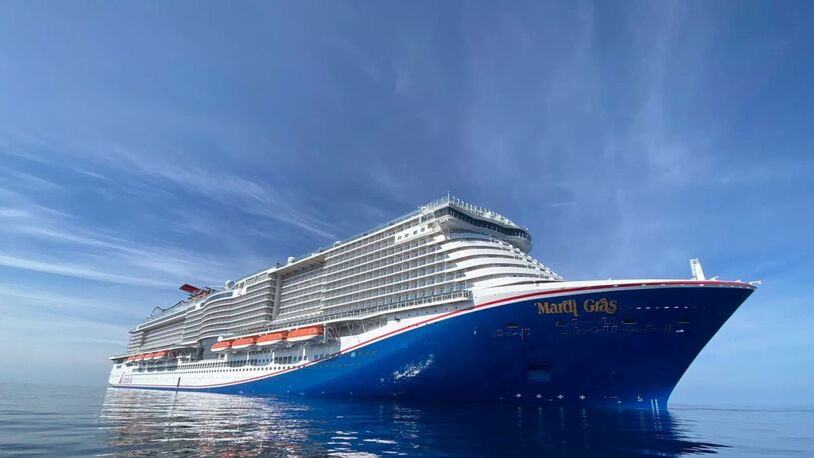Business Sectors
Contents
Ferry companies embrace new technology to streamline reservations
The pace of change in the world of information technology shows no signs of slowing down, creating some interesting opportunities for passenger ship operators
The introduction of cloud-based IT solutions, more intuitive and smart technology, ‘big data’ processing systems, and the ability to introduce greater automation of previously manual processes are all influencing the ongoing development of booking and reservations systems for cruise and ferry companies. Operators are, for instance, encouraging travellers to use self-service options, while combining data from various sources enables companies to gain valuable insights into their passengers’ preferences. The integration of booking systems with automatic number plate recognition can also be used to speed up the check-in process and generally improve customer service levels.
“Streamlining and improving the customer experience is becoming vital for all travel operators, and the ferry industry is no exception,” says Niclas Blomström, managing director of Finland-based Hogia Ferry Systems. “Radical changes are unusual but, following the airlines, the ability to check in at home and get a mobile boarding card is one likely trend and we are seeing that many ferry travellers are keen to book additional services and products when booking their ferry ticket. So we are likely to see more advanced, yet easy to use, ferry web-booking pages, with lots of additional offerings.”
Another leading player in the passenger systems reservation sector, Finland’s Carus, observes that big data is doing much to drive technology changes and is opening up fresh possibilities for passenger ship operators to engage with their customers. Carus executive consulting president Simon Johnson says: “We see real interest from the passenger shipping market in embracing technical solutions and improving business processes to join up customer touch points and drive value. The industry certainly has a lot to do to catch up with other sectors, so watch this space.”
Seizing the opportunity presented by prevailing information technology advances, companies specialising in booking and reservations systems for the passenger shipping sector continue to refine and enhance their products. This year, for example, Hogia Ferry Systems has developed an application for a self-service check-in kiosk for passengers. Designed to work in conjunction with kiosks supplied by its hardware partner, Sweden’s Gordion, the new application is intended to streamline and speed up check-in, freeing passenger check-in staff to help out where they are needed.
Hogia’s well-established BOOKIT system has been upgraded to handle ‘show and go’ freight vehicle traffic, a feature that has recently gone live on routes operated by HH Ferries Group. Mr Blomström says: “This facility means that certain traffic routes can be made more attractive to freight agents, as pre-booking is not a requirement and drivers do not have to get out of their cabs to go to the booking office.”
BOOKIT is also now set up to work in tandem with automatic number plate recognition. Mr Blomström says: “With automatic number plate recognition, bookings are pulled up automatically, so you can greet car passengers by name and process them quickly. National vehicle databases can also be integrated with the system to retrieve the exact lengths of vehicles, in order to optimise vessel capacity and revenue.”
Pre and post travel email is another new feature in BOOKIT. Mr Blomström says: “Like the airlines, the ferry operator can now send a welcoming email to customers a few days before travel, and then after travel an email thanking them for using their services and inviting them to take part in a survey.”
HH Ferries is one of the latest ferry operators to start using Hogia systems, having signed a contract covering its services between Helsingborg in Sweden and Helsingør in Denmark in 2015. BOOKIT is now live and is handling ticketing, reservations and invoicing for both passengers and freight customers on this route. One of HH Ferries’ main aims in switching to BOOKIT is to increase online sales, through the web platform provided by Hogia.
Other recent contracts have been signed by Hogia with the Isles of Scilly Steamship Co, and Ornö Sjötrafik, which runs a service in the Stockholm archipelago. The Isles of Scilly contract is particularly interesting, as it involves the integration of ferry and airline services.
Hogia has a close working relationship with Microsoft, and the company is planning to launch BOOKIT on Platform as a Service (PaaS) on Microsoft Azure in 2017. PaaS is a complete development and deployment environment in the cloud with resources that enable the user to deliver everything from simple apps to sophisticated enterprise applications. “Apart from the technical benefits, we hope that there will also be an opportunity for customers to reduce their hosting costs,” says Mr Blomström.
Over the first half of this year, Italian company E-Dea has successfully completed the migration of the Grimaldi Group to the latest version of its ferry reservations system, eBooking R4. Based on the new Java 8 development platform and backed by the latest Oracle technology, R4 includes several major functional upgrades designed to increase ferry companies’ business opportunities and to improve the efficiency of the reservations process.
Marco Pavoncelli, chief commercial officer, explains. “Frequent, aggressive marketing campaigns, with advance pricing options and more complex product bundling, are all well supported by eBooking R4. We have introduced improved booking rules which has added extra flexibility to the system, enabling ferry companies to implement different sales strategies within a standardised product.”
E-Dea is already working on the next upgrade, R5. This will include several as-yet unspecified technology improvements, as well as the ability to deploy the system on popular cloud-based platforms, such as Amazon Web Services and Oracle Cloud Services.
Mr Pavoncelli adds: “Cloud-based services are ideal for ferry companies with growing or fluctuating business demands as a result of high and low seasons within their operations. This level of agility can give ferry companies using cloud computing a real advantage over their competitors.”
As well as the Grimaldi project, E-Dea has been working on a number of notable reservations installations for passenger shipping lines and ports across Europe. It has, for example, been appointed by Port Boulogne Calais to supply an integrated solution for the management of all unaccompanied passenger traffic. The system, which is close to going live, is also integrated with the port’s rail system, operated by SNCF subsidiary VIIA, and will allow the port to speed up loading and unloading processes.
Ustica Lines, one of the world’s largest high speed ferry operators, has chosen E-Dea, too – in this case to supply an integrated boarding system. This will facilitate boarding through the use of mobile devices connected to the reservations system.
Mr Pavoncelli says: “With this latest project with Ustica Lines, as well as designing a system for a very high number of passengers, the challenge was to accommodate the number of legs within each sailing, with passengers often disembarking from one ferry and then boarding another, all with very frequent departures.”
E-Dea has also been working with existing customer Color Line, which has switched to automatic number plate recognition for vehicle boarding. This process has been integrated with the E-Dea eBooking reservation system. The company’s eBoarding Gate Light system is also being used year round in five ports served by Color Line, achieving a major reduction in check-in waiting times. Two more ports will be converted to the E-Dea system in the coming months to complete this project.
E-Dea believes that there is potential to go a step further in using automatic detection capability. Mr Pavoncelli says: “It would be interesting to improve automatic detection technology to include the detection of the number of passengers travelling in cars when they arrive at the boarding gate. This is something that could eventually enable the compete automation of the ferry boarding process.”
Last August ferry software supplier Carus acquired UK-based Quintek, a retail information specialist, and has since been working to integrate its own well-established passenger reservation system with the Quintek point of sale system. Quintek provides retail and hospitality systems for a wide range of customers and already had a presence in the ferry sector with clients such as the Isle of Man Steam Packet Co, Northlink Ferries, P&O Ferries and TT-Line. Mr Johnson says: “Our aim in embarking on a journey to integrate our system with Quintek’s is to join up the passenger experience from booking to travelling and allow operators to leverage the revenue opportunities.”
Carus systems are now being used by around 30 different ferry companies, handling more than 30 million passengers a year. The past 12 months have seen continued growth for the business. New clients for its reservation systems include Gotlandsbåten of Sweden and the Alaska Marine Highway System in the USA. In the UK, Condor Ferries signed up with Carus in March this year and is now using its reservations and onboard point of sale catering and retail systems.
Carus says it detects a change in ferry company boardrooms, with a greater appetite to do things differently, to improve customer service and experience, and ultimately boost revenues. Mr Johnson adds: “This includes a widespread review of current booking check-in and onboard retail systems, and we feel Carus is in a strong position to offer what the ferry companies are looking for.”
Heavily focused on the cruise market, UK-headquartered Rescompany Systems has recently completely revised the user interface and front end of its Resco CRM customer relationship management and Resco CRS central reservations modules, making them more intuitive for users. The upgraded versions feature simple Windows and dashboard-based screen formats, with icons replacing field names. Reservations and sales processes are managed in one area. Managing director Peter Winqvist says: “The new front end of our system allows management to concentrate on personnel training in selling products and achieving sensible call flows, rather than on system training.”
The system’s buttons and columns can be easily customised, allowing a company to custom design reservation and booking flow processes. Customer and agency details are present at all times in the booking process, enabling users to quickly identify the source of the booking, which is an important consideration in maintaining agency and guest loyalty programmes. Mr Winqvist says: “With increased competition and consolidation in the cruise market, cruise lines need to ensure that guest loyalty related data is always available at key touch points, from the start of booking through to after-trip marketing.”
Rescompany has also recently released a new business intelligence module, Resco BI, with user defined dashboards that report real-time data results to facilitate business decisions. Other new features include yield management and dynamic pricing; a packaging capability where events, item sales and discounts are combined for promotions; and a fly-cruise option including tour packaging.
Mr Winqvist draws attention to the growing need for cruise ship guests to have full web access in order to reserve and arrange onboard amenities and activities ahead of the trip, and to manage their personal accounts. He says: “It is also important that all guest information is readily available and fully integrated in both land and ship systems to enhance the guest experience on board, from the speed of embarkation to meeting a guest’s specific wants and needs throughout their cruise.”
Looking to the future, Rescompany believes this integration will enable guests to check in with mobile devices at any time and provide loyal customers with cards, or QR (quick response) codes using mobile devices, that follow the life of the user on board any vessel within a company’s fleet of ships. “We also expect that digital and virtual reality technology will be used in every area of the booking process. Rescompany is very well positioned to meet all these requirements in the future,” says Mr Winqvist.
Rescompany continues to add new cruise line customers to its portfolio, including Costa Asia in China. Tui Cruises’ Mein Schiff 5 and Thomson Cruises’ TUI Discovery have also recently gone online with Resco systems. To support its existing and potential customer base in the USA, Rescompany has recently opened an office in Fort Lauderdale.
US-based software systems provider Versonix Corp is another business that has recently made enhancements to its system for the passenger shipping sector, ensuring that its reservations platform continues to meet the expectations of its customers. Kristen Kristich-Madar, project manager, says: “We see an increasing demand for reservation systems that offer more capabilities. To meet this demand, our most recent developments include demand based pricing, mobile platform support, more sophisticated packaging capabilities, online pre-check in and check-in services and social media integration.”
Versonix has recently announced that contracts have been signed with a number of cruise companies. These include AmaWaterways, Crystal Cruises, Star Cruises and Dream Cruise Line and Windstar Cruises. This year Star Cruises and Dream Cruises went live with Seaware Touch, Versonix’s new user interface, which has been optimised for mobile devices.
Ms Kristich-Madar adds: “As technology advances, the possibilities for ticketing and reservation systems continue to grow. Modern convenience will continue to be the catalyst for better and faster mobile applications, voice integration and customised offerings based on customer profiling that will enable a personalised and efficient booking experience. At Versonix we are continually striving to provide the ultimate reservation system which is the perfect mix of functionality and usability.”
Related to this Story
Events
Maritime Decarbonisation, Europe: Conference, Awards & Exhibition 2025
Offshore Support Journal Conference, Americas 2025
LNG Shipping & Terminals Conference 2025
© 2024 Riviera Maritime Media Ltd.












